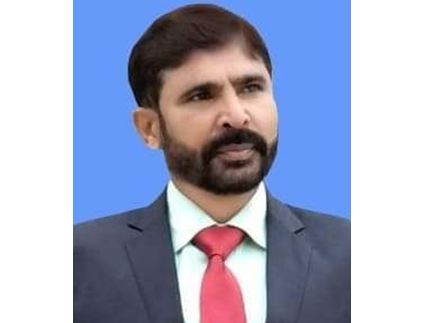Dr. Muhammad Akram Zaheer
The world is currently undergoing a profound transformation, a phenomenon that occurs only once in a few generations. This transformation is not orchestrated by those in power, and it cannot be easily thwarted. It commences with economic and political pressures within countries, which can escalate into military conflicts as internal systems strive to regain stability.
Some nations manage these changes as challenging yet normal occurrences, while others teeter on the brink of instability or find themselves under attack. This metamorphosis is frequently referred to as progress, but it is far from an effortless victory; rather, it’s a painful struggle with the intricacies of reality. Often, the hardships and trials of development prompt people to lay blame on other groups or nations for the disruptions and alterations, rather than examining their own actions.
The origins of this current era can be traced back to the early 1990s in Europe when the Soviet Union disintegrated, and the Maastricht Treaty was signed to unite the continent. In 2001, the United States experienced the September 11 attacks, and in 2013, Xi Jinping assumed the presidency of China. In the grand tapestry of history, a decade or two represents a relatively brief span of time. The initial objective of the Soviet Union’s dissolution was to foster a more efficient region. The unification of Europe under the European Union was intended to diminish the prospects of conflict and promote prosperity.
The U.S. response to the 9/11 attacks aimed to mitigate the threat of terrorism. Xi’s ascension in China was envisioned to propel the nation toward substantial prosperity. None of these aspirations can be deemed outright failures. The disintegration of the Soviet Union brought prosperity to many former Soviet states. European unification enjoyed a period of relative productivity. The U.S. response effectively prevented another large-scale attack akin to 9/11. Meanwhile, China continued its economic expansion. As with previous cycles, these leaders’ objectives were not utter failures, at least until the next cycle took hold.
A generation has passed since the commencement of the last major transformation, and the deficiencies of the preceding phase are now manifesting. Russia has been diligently working to reestablish its influence since the Ukrainian conflict. The European Union is grappling with deep-seated divisions, to the extent that Germany and France have proposed formalizing this schism. Recently, Islamic fundamentalism has resurfaced in the wake of attacks by Hamas on Israel. The United States, having successfully evaded another major terrorist attack, has entered the foreseeable final phase of its cycle, with social unrest manifesting along political, racial, religious, sexual, and other fault lines. These trends are likely to dominate the years ahead, and China’s economic growth has generated economic vulnerabilities and political friction.
Two fundamental points emerge from this scenario. First, nations are composed of millions of individuals, each with their own perspectives and judgments. When things go awry, there is a natural inclination to seek scapegoats, often resulting in leaders bearing the brunt of blame. Secondly, and perhaps more significantly, the predicaments of the new era often stem from the solutions implemented in the previous era. Thus, we find ourselves in a new era that originated from the last, with the recurrence of wars, economic challenges, and mutual resentments. These are universal realities that can occasionally usher in joy but are more frequently tragic in nature. The Greeks, with their deep sense of history and cyclical thinking, may well have perceived the world in a similar light.
The question arises: can humanity break free from these cycles? It would be comforting to think so, but as history has shown, such attempts have met with limited success. The cycle of change and turmoil appears to be deeply ingrained in the human experience. However, understanding the cyclical nature of history can provide valuable insights into our current challenges. To break free from these cycles, it is imperative that nations and leaders take a more proactive approach to addressing the root causes of these recurring issues. Instead of resorting to blame and finger-pointing, a more constructive and collaborative approach is needed. This entails a greater focus on diplomacy, conflict resolution, and global cooperation.
It requires a concerted effort to address the underlying economic, political, and social factors that contribute to instability and conflict. Moreover, it is essential to learn from past mistakes and successes. History is a rich source of knowledge and experience that can guide us in making more informed decisions. By studying the patterns and trends of previous eras, we can better anticipate and navigate the challenges of the present and future. Breaking free from these cycles also requires a shift in mindset.
It demands recognition that the world is interconnected and interdependent. The challenges we face, whether they be economic, political, or social, are not isolated to individual nations. They have global repercussions. Therefore, a more holistic and cooperative approach is necessary to address these challenges effectively.
The world is indeed undergoing a significant transformation, one that is deeply rooted in the cyclical nature of history. The challenges we face today are not isolated incidents but are part of a larger pattern of change and upheaval. While it may be difficult to completely break free from these cycles, it is not impossible. By taking a more proactive, collaborative, and informed approach, nations and leaders can work towards a more stable and peaceful world. Understanding the past can illuminate a path to a more harmonious future, where progress is achieved with less pain and struggle.












